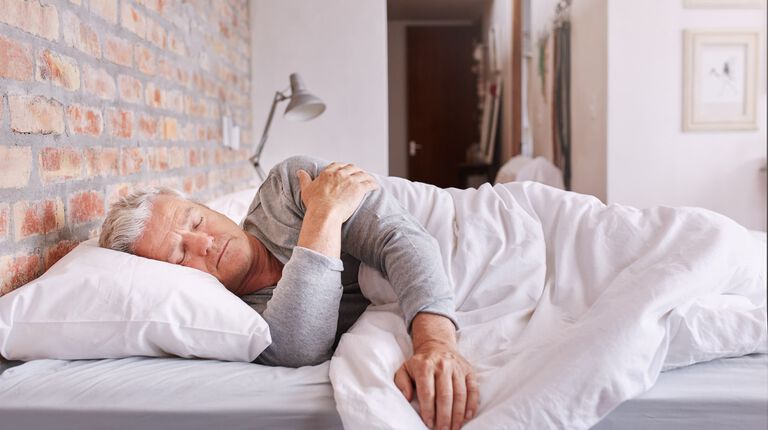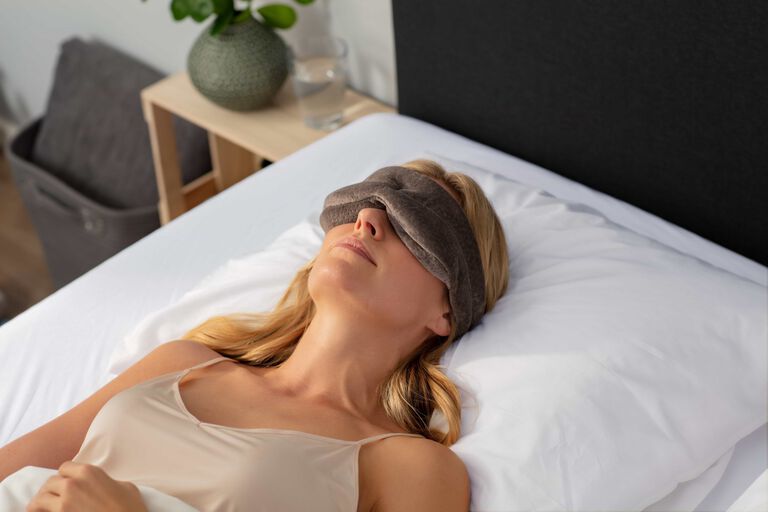HOW DOES SLEEP CHANGE AS WE AGE?

With the average human sleeping for an estimated third of their lives, sleep occupies a huge portion of our time. However, while the need for sleep is consistent throughout, the relationship each person has with sleep changes over the course of their life.
Throughout a human life there are significant fluctuations in the quantity of sleep required and the difficulties encountered when trying to obtain it. Whilst genetics and environments mean that these changes vary greatly between individuals, there are some common trends within each age group.
In this article, TEMPUR® explore the patterns of change in sleep across human lifespans and provides advice on how to get a peaceful night’s rest at each stage of your life.
WHY DO NEWBORN BABIES AND INFANTS NEED SO MUCH SLEEP?
Newborns (babies under 3 months old) and infants (4-11 months) spend a larger portion of their days asleep than any other age group. Newborns generally sleep between 14 to 17 hours per day, while infants normally sleep between 12 to 15 hours per day. This seemingly enormous quantity of sleep is necessary, as newborns and infants require huge amounts of energy each day in order to grow.
The sleep pattern of babies under the age of 1 is also the least regular, with their rest often being obtained in chunks spread throughout the day and night.
SLEEP TIME FOR KIDS
The amount of sleep we require decreases during our childhood. By the time children are 4, between 10 to 13 hours of sleep per day is average. Generally, their sleep pattern also becomes more regular. Children often start to sleep through the entire night at this stage, supplementing this with a small number of daytime naps.
Sleep time for kids starts to reduce at a slower rate between the ages of 6 and 13. These children will usually require approximately 9 to 11 hours of sleep per day. However, the regularity of their sleep does continue to increase, with sleep patterns often eliminating napping during this time.
THE REQUIREMENTS OF A SLEEPING TEEN
Teenagers tend to require slightly less sleep than young children, with the recommended amount being between 8 to 10 hours per day.
Nevertheless, puberty and hormones impact all aspects of a person’s life, including sleep. A teenager’s internal rhythms shift because of these hormonal changes, causing them to frequently have difficulties falling asleep at an early hour. Combined with the need to rise early in the morning for school, this shifted sleep pattern means that sleep deprivation is very common amongst teens.
SLEEP TIME FOR ADULTS
From 18 onwards, the quantity of sleep we require stabilises at the recommended 7 to 9 hours per night. Sleep patterns also tend to shift back to normal, so that adults generally sleep at a slightly earlier time than teenagers.
However, it is across the long span of adulthood that people become more likely to encounter sleep difficulties. There is a range of issues that can be responsible, with genetics and lifestyle both playing an important part. From anxiety at work to snoring, adults face sleep issues that can affect both their ability to fall asleep and their quality of sleep once they do.
DO OLDER PEOPLE NEED LESS SLEEP?
Older people do tend to require slightly less sleep, with the recommended amount for over-65s being between 7 and 8 hours per night.
Unfortunately, many elderly people do not obtain the recommended amount of sleep, due to sleep problems including:
- Insomnia
- Sleep Apnoea (when breathing stops for a time during sleep)
- Snoring
- Side-effects of medications causing sleep difficulty
- Waking up in need of the bathroom
These issues can leave many older people feeling tired and can eventually even lead to mental confusion. Further, older people normally have a more abrupt transition from sleeping to waking. This means they often don’t feel well-rested, even after a full night of sleep.
HOW TO GET A GOOD NIGHT’S SLEEP?
Although it can be disheartening to see that the quality of our sleep often decreases throughout our life, remember that these are only patterns and many people do not experience these sleep issues. Practice good sleep hygiene and you can maximise your sleep quality to continue enjoying the many benefits of a good night’s rest.
A person of any age can increase the quality of their sleep by establishing a soothing bedtime routine. The repetition of relaxing activities each night before bed, such as bathing or reading, will help your brain to recognise when it is time to fall asleep.
You should also consider your sleep environment, particularly the quality of your mattress and pillows. These should offer comfort and support, helping you to achieve a deep and rejuvenating night of rest. This environment should also be free of stimulating devices, such as phones or televisions.
Feel it for yourself
Find a TEMPUR store or Stockist and try out our range of mattresses for yourself

Download our brochure
Want to know more about our story? Download our brochure to see more.

Visit a TEMPUR® store or talk to a sleep expert
Want to know more about TEMPUR®? Either visit us in store or arrange to speak to us today.
Get the latest news and offers
Sign up to receive news and offers about TEMPUR® products. Detailed information on the use and storage of data can be found in the Privacy Policy.

